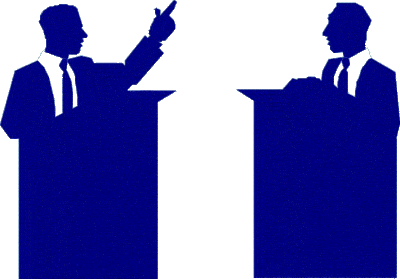
Essential Points to be Kept in Mind During Political Disputes
Living in a modern democratic society means that all people can express their opinion. It often happens that those participating in political debates have different goals. Analysis of political discussions shows the need for participants to consider their opponents’ characteristics. For a political dispute to be constructive, all parties involved in it should respect their opponents’ ideas, perceptions, convictions, and systems of values. The same way an APA format generator follows particular guidelines, political debates also involve a structure.
Open-Minded and Close-Minded People
Some people perceive the world around them with an open mind. They strive to learn, and at the same time, they are ready to make mistakes. Others want to make their opponent accept their point of view and show aggression if they’re disagreed with. They consider their opinion the only correct one, and they can hardly change their beliefs. However, the ability to change one’s viewpoint is a blessing. How fast we learn and advance up the career ladder depends on how we are prepared to accept new ideas, even if they are held by someone we dislike.
Narrow-minded people can’t stand it when their ideas get challenged. As a rule, they become very disappointed if they cannot get other people to agree with them. They are not interested in why their opponent disagrees. All they care about is proving their point of view. These people do not ask questions, and they get angry when somebody asks them to explain their viewpoint.
An open-minded individual, on the other hand, is curious to know another person’s opinion. If they disagree with their opponent, they find a wise way to do that. Tolerant people are not angry, nor do they get upset about uncomfortable questions. They want to determine what causes disagreement to eliminate their misconceptions. Finally, they think that being right means being able to change your viewpoint when someone else knows something you don’t.
Expediency of Polemics

Apart from considering your opponent’s characteristics, it’s also necessary to establish the format of the forthcoming debate — whether it’ll be a discussion, dispute, or controversy. Philosophy teaches us that truth is relative. Each point of view already contains the truth to a greater or lesser extent, and we can only know how successful an idea is only after it’s worked in practice. Avoiding confrontation, disputes, and polemics is impossible since different viewpoints are objectively present in the cognitive process and are, therefore, essential for social development.
It’s also worth noting that such forms of communication may not bring the desired result in certain circumstances. Some experts recommend avoiding disputes, especially in cases when you need to convince your opponent. When describing ways of getting others to accept your views, Dale Carnegie cites his research whereby one person out of two could not gain the upper hand in a debate. When a discussion ends in someone’s favor, the loser feels annoyed. However, they will most likely remain unconvinced. Therefore, D. Carnegie came up with the following rule of convincing people: “The only way to get the best of an argument is to avoid it.”
Thesis Is a Basis of Any Dispute
Conducting a constructive discussion requires defining an issue under debate. As far as the controversy is concerned, this form of communication is not only about discussing a topic but also establishing diverging approaches to solving a problem. And that’s when the controversy begins. The dispute is usually based on the following scheme: thesis — several arguments —conclusion.
It should be understood that communication in politics is not an end in itself but a means of developing an attitude toward the problem in question. The goal of this approach is to affect the opinion of one or many persons. In the course of providing arguments, one should be guided by the fundamental laws of formal logic described in the textbooks.
Reasoning in Political Debates

Presenting arguments in a political dispute requires one to conduct a specific type of analysis. What makes it different from purely logical proof is that the ideas expressed here have some psychological undertones. Reasoning has two layers of justification. The first layer is an objective rationale that doesn’t take into account the opponent. The second one is a system of reason to convince the opponent of the acceptability, worthiness, and truthfulness of a thesis.
Moreover, reasoning in the course of discussions, disputes, and polemics cannot be reduced only to logical proof. This process implies review, critical analysis, and selection of arguments necessary for all further reasoning. It is a systematic consideration of alternative versions with an evaluation of their logical consequences. Here, the primary methods of reasoning can be intellectual modeling and mental experimenting with the subsequent analysis of the conclusion.
Formal Logic in Political Disputes
During political debates, arguments do not always follow the requirements of formal logic. If analogies, generalizations, and emotional evaluations are not applied in deductive reasoning, they are often compelling and bring results in political disputes and polemics. The same applies to the accuracy of concepts and veracity of arguments. Requiring your opponent to provide verifiable ideas is useless because they may be non-existent or be the exact reason for a debate. The use of well-grounded arguments is one of the basic requirements in logic. However, in political discussions and disputes, it’s the speakers who determine whether this or that argument is acceptable. Therefore, it is up to the speaker to decide whether to tell the truth or manipulate facts.
To sum up, the rules for conducting debates in politics is something that is only beginning to be studied. Therefore, the requirements for holding political disputes need to be further developed. And that should include logical, psychological, and ethical components.